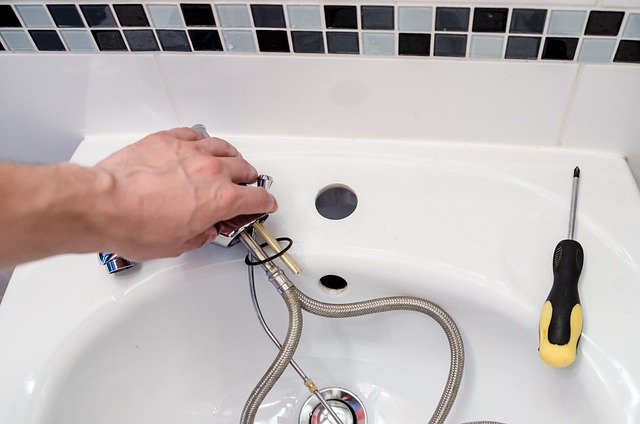Introduction
Plumbers are often unsung heroes, working behind the scenes to ensure our homes and businesses have access to clean water and functional plumbing systems, notes Campus Realtors professionals.
The Crucial Role of Plumbers
Plumbers are skilled professionals who specialize in the installation, maintenance, and repair of plumbing systems. These systems are essential for our daily lives and the functioning of our homes, businesses, and public spaces. Here are some key aspects of their crucial role:
1.1. Installation:
Plumbers are responsible for installing plumbing systems in residential, commercial, and industrial buildings. This includes an introduction to flow measuring devices, setting up pipes, fixtures, and appliances such as sinks, toilets, showers, and water heaters.
1.2. Maintenance: Regular maintenance of plumbing systems is vital to prevent issues and ensure their efficient operation. Plumbers perform tasks like cleaning drains, flushing water heaters, and checking for leaks during routine inspections.
1.3. Repairs: When plumbing systems malfunction or develop problems, plumbers are called upon to diagnose the issue and provide effective solutions. This includes fixing leaks, unclogging drains, and repairing or replacing damaged pipes and fixtures.
1.4. Emergency Response: Plumbers are often on call 24/7 to respond to plumbing emergencies, such as burst pipes or severe leaks. Their quick response can prevent extensive water damage and inconvenience for property owners.
Essential Skills and Qualifications
Becoming a successful plumber requires a diverse set of skills and qualifications:
2.1. Technical Expertise: Plumbers must have in-depth knowledge of plumbing systems, including various types of pipes, fittings, and fixtures. They also need to stay updated on the latest plumbing technologies and techniques.
2.2. Problem-Solving Abilities: Plumbing issues can be complex, and plumber needs to be skilled at diagnosing problems and finding effective solutions. This often involves critical thinking and troubleshooting.
2.3. Physical Fitness: Plumbing work can be physically demanding. Plumbers frequently lift heavy pipes and equipment, work in tight spaces, and spend long hours on their feet. Physical stamina is crucial for the job.
2.4. Communication Skills: Effective communication with clients, colleagues, and suppliers is vital. Plumbers need to explain issues, discuss repair options, and provide estimates in a clear and understandable manner.
2.5. Attention to Detail: Small mistakes in plumbing work can lead to significant problems. Plumbers must pay meticulous attention to detail to ensure their work is precise and error-free.
2.6. Customer Service: Plumbers often interact with homeowners and business owners who are dealing with stressful plumbing issues. Good customer service skills, including empathy and professionalism, are essential to reassure and support clients.
The Path to Becoming a Plumber
Becoming a plumber typically involves a combination of formal education, apprenticeship, and on-the-job training:
3.1. High School Education: Many aspiring plumbers start by earning a high school diploma or its equivalent. Courses in mathematics, science, and vocational education can be beneficial.
3.2. Vocational Training: After completing high school, individuals can enroll in vocational or technical schools that offer plumbing programs. These programs provide a foundation in plumbing theory and practical skills.
3.3. Apprenticeship: One of the most critical steps in becoming a plumber is completing an apprenticeship. During this period, apprentices work under the guidance of experienced plumbers, gaining hands-on experience in real-world plumbing projects.
3.4. Licensing: In most regions, plumbers are required to obtain a license to practice independently. Licensing requirements vary by location but generally include passing an exam and meeting experience and education criteria.
3.5. Continuing Education: To stay current in their field, plumbers often engage in ongoing education and training. This helps them stay up-to-date with the latest plumbing technologies and regulations.
Challenges Faced by Plumbers
While plumbing can be a rewarding profession, it comes with its fair share of challenges:
4.1. Physical Demands: Plumbing work is physically demanding, which can lead to strain and injury over time. Plumbers must prioritize safety and proper ergonomics.
4.2. Irregular Hours: Plumbers are often called to handle emergencies at odd hours, disrupting their work-life balance. They need to be prepared for unpredictable schedules.
4.3. Job Hazards: Plumbers may encounter hazardous materials, such as asbestos or lead, during their work. Proper safety measures are essential to mitigate these risks.
4.4. Economic Factors: Plumbers may face fluctuations in demand due to economic factors and seasonal changes. Economic downturns can impact the construction industry, affecting plumbing work.
4.5. Competition: In densely populated areas, plumbers face stiff competition. To succeed, they must differentiate themselves through skills, reputation, and customer service.
The Significance of Plumbing in Modern Society
Plumbing plays a vital role in modern society, contributing to public health, sanitation, and our overall well-being:
5.1. Clean Water Supply: Plumbing systems ensure the delivery of clean, potable water to homes and businesses. This is essential for drinking, cooking, bathing, and maintaining hygiene.
5.2. Wastewater Management: Plumbing systems facilitate the safe removal and treatment of wastewater. Proper wastewater management prevents contamination of water sources and the spread of diseases.
5.3. Indoor Comfort: Plumbing systems provide us with essential comforts, including hot showers, flushing toilets, dishwashers, and washing machines.
5.4. Environmental Impact: Sustainable plumbing practices, such as water-efficient fixtures and rainwater harvesting, contribute to environmental conservation by reducing water waste.
The Future of Plumbing
As technology advances and environmental concerns grow, the plumbing industry is evolving to meet new challenges and opportunities:
6.1. Smart Plumbing: Integration of smart technology into plumbing systems allows for remote monitoring, leak detection, and water conservation. Smart fixtures and appliances are becoming more common.
6.2. Green Plumbing: Environmental sustainability is a growing focus in plumbing. This includes the use of eco-friendly materials, water-saving technologies, and renewable energy sources for water heating.
6.3. Regulatory Changes: Plumbing codes and regulations are continually evolving to promote water conservation, safety, and efficiency. Plumbers must stay informed about these changes to remain compliant.
6.4. Training and Certification: Ongoing training and certification in new technologies and practices will be essential for plumbers to remain competitive and provide the best service to their clients.
Conclusion
Plumbers are the unsung heroes of our current world, ensuring that we have get entry to to smooth water and purposeful plumbing structures. Their function is various, encompassing setup, renovation, repair, and emergency response. Becoming a plumber calls for a combination of training, apprenticeship, and ongoing education, with a focal point on technical talents, problem-solving, and customer service.
Despite the demanding situations they face, plumbers continue to be vital to our daily lives, and their paintings will come to be greater crucial as we navigate the evolving panorama of plumbing generation and sustainability. The next time you switch on the faucet or flush the restroom, take a moment to realize the professional specialists operating diligently behind the curtain—our plumbing heroes, the plumbers.






